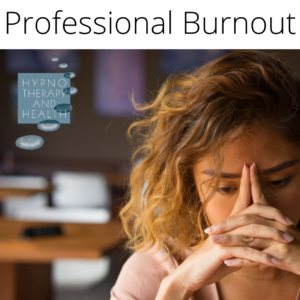Are you at risk of Professional burnout? We have all felt the stress of balancing work-home life, especially as the distinction has blurred due to COVID-19. Sometimes it’s easy to feel overwhelmed by the workload, and therefore our time for self-care is limited. Usually, this feeling of overwhelm passes, as you accomplish a certain task that was giving you particular grief. But what if this feeling doesn’t pass? What if you consistently feel exhausted from your job, amongst other things?
COVID-19. Sometimes it’s easy to feel overwhelmed by the workload, and therefore our time for self-care is limited. Usually, this feeling of overwhelm passes, as you accomplish a certain task that was giving you particular grief. But what if this feeling doesn’t pass? What if you consistently feel exhausted from your job, amongst other things?
You could be suffering from burnout.
What is Burnout?
Professional Burnout, also known as Occupational Burnout, is a unique form of stress, related specifically to work. It was first defined by Freudenberg, who coined the term in his book “Burnout: The High Cost of High Achievement”, in which he stated that burnout is “the extinction of motivation or incentive, especially where one’s devotion to a cause or relationship fails to produce the desired results.”
It often presents itself as a state of total emotional and/or physical exhaustion, with tertiary symptoms such as reduced workflow, goal attainment, and motivation. Whilst Professional Burnout isn’t classed as a medical condition. There could be related conditions that act as contributory factors, such as depression or anxiety.
How Do I Know if I’m at Risk?
There are a few questions you can ask yourselves to see if you’re suffering from, or experiencing symptoms of, burnout. Answer the following questions:
- Do you feel constantly tired, lacking the energy required to be productive consistently?
- Do you feel disconnected from your job?
- Are you relying on vices to relieve stress/feel happy, such as food, drugs, or alcohol?
- Have you noticed a change in your sleeping schedule?
- Do you have trouble focussing? Or lack concentration?
- Do you suffer from unexplained physical symptoms such as headaches, stomach pains, or nausea?
- Do you struggle to bring yourself to work?
If you found yourself answering yes to multiple questions. You may be suffering from professional burnout. It’s important to consult your doctor as these could also be symptoms of other health issues, such as depression.
What Increases my Risk?
A high-stress job such as manager, CEO, or entrepreneur, doesn’t always result in burnout, but it can mean you are at increased risk. Some of the risk factors for burnout are:
- Lack of Communication and Support – This can be particularly difficult to manoeuvre when you’re in a position of seniority. There may not be anyone to supervise and support you, and you also have your employees relying on you. It can add a lot of pressure.
- Excessive workload – It’s hard not to feel overwhelmed if you have a workload that feels unmanageable. Just as you feel like you’re making headway, more work gets added to the pile. The feeling of hopelessness of completing your tasks can quickly turn into burnout.
- Time Constraints – If experienced in conjunction with excessive workload, or even on its own, tight schedules and “crunches” can easily lead to burnout. Working 110% to meet deadlines that are unreasonable can cause insurmountable pressure.
- Work-Life Imbalance – If you aren’t given enough time to unwind and practice self-care, you might find yourself burning out.
How Can I Overcome Burnout?
There are a few ways that you can help relieve the burnout burden, and strategies you can put in place to ensure you minimise the risk of it occurring again.
- Seeking Support – If available, it might help to contact the HR department of your company to discuss the issues you are facing. If you are feeling that the expectations you face are unreasonable, you might find it helpful to voice your concerns.
- Take Up a Relaxing Activity – Practicing mindfulness orientated activities such as meditation or yoga can help you destress, and relax your body and mind.
- Maintain a Good Sleep Pattern – It’s hard not to fall into unhealthy sleeping habits when you’re consistently exhausted. However, it’s important to maintain a set schedule to make sure you’re getting good quality sleep. Setting the pattern will also help regulate your energy levels.
- Exercise – Exercise is proven to relieve stress and releases endorphins. These hormones trigger a positive feeling in the body and reduces stress.
- Hypnotherapy – Hypnotherapy can help you break habits and address the root causes of your burnout. It can help you to set new routines, and reset your mindset and outlook on work and life.
Burnout Beware
It’s important to keep the symptoms of burnout in the back of your mind and to take some time to evaluate yourself every now and then to see if you’re at risk of or coming close to, experiencing burnout. It’s easier to prevent it than it is to fix it. But that doesn’t mean it’s impossible to reverse burnout either!
If you feel like you’re on the verge of burnout. Or think you might already be suffering. Send me an email or give me a call for a chat to fix that burnout once and for all!
